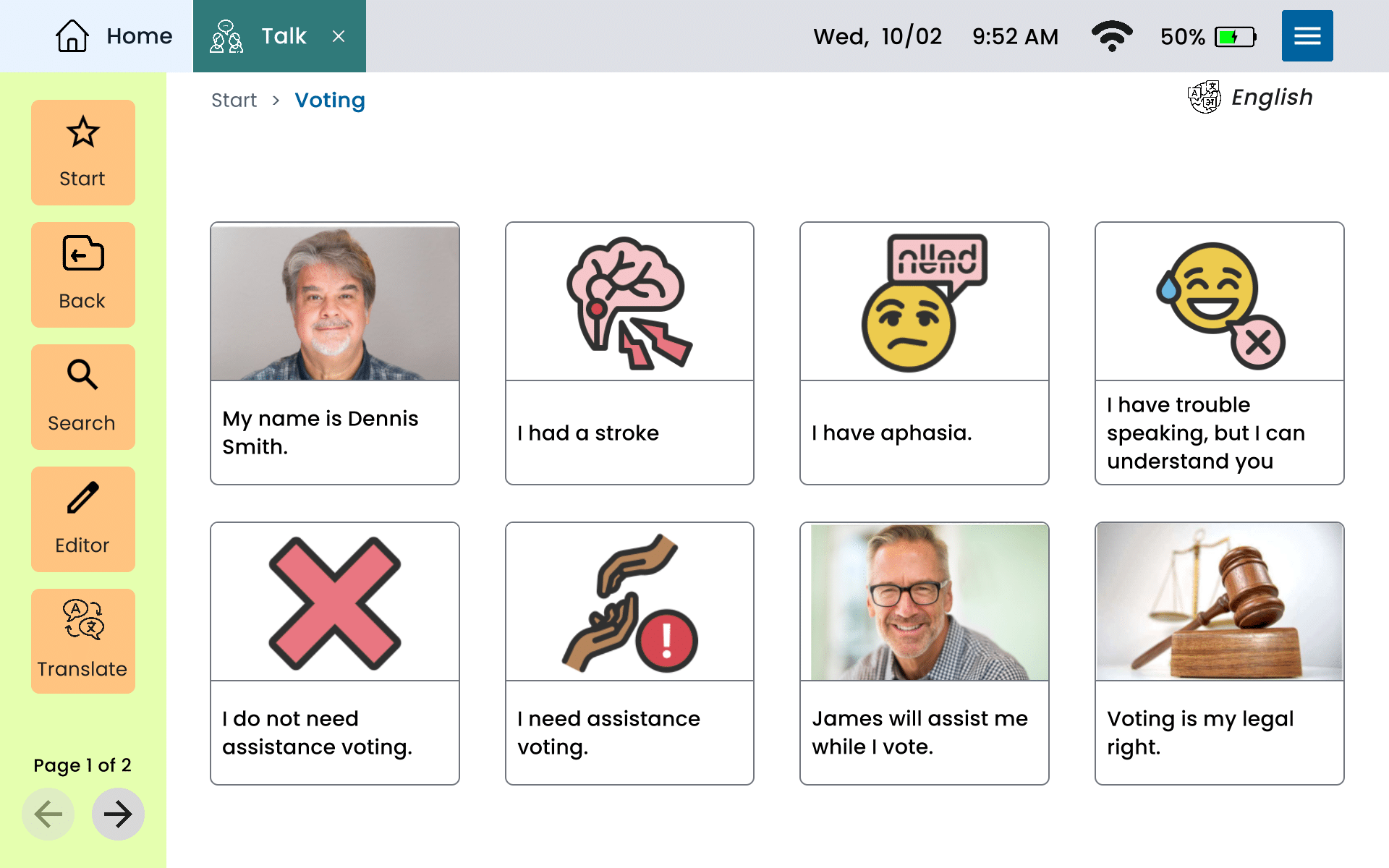It’s that time of the year once again — Americans are getting ready to cast their votes on Tuesday, November 5, 2024. As people head to the polls to exercise their rights to vote, many will be doing so with aphasia or other communication challenges. This blog is here to help ensure that you or your loved ones have everything needed to make voting as smooth as possible.
Understanding Barriers to Voting
Disability can profoundly affect one’s ability to participate in essential elements of democratic practice, such as voting. Approximately 1 in 4 adults in the U.S. has a disability. This group of Americans faces some of the greatest barriers to voting in our elections. In 2020, more than 11% of voters with disabilities faced some type of difficulty casting their ballots.
While the accessibility of polling places has improved, there is still much work to be done. It’s crucial to know your rights and prepare ahead of time to overcome any potential challenges.
Knowing Your Rights
While accessibility in general remains insufficient, it’s important to note that as a U.S. citizen, you have rights. At the federal level, the Americans with Disabilities Act (ADA) provides protections to people with disabilities. Title II of the ADA requires that state and local governments ensure that people with disabilities have full and equal opportunities to vote. Likewise, the Voting Rights Act of 1965 (VRA) allows voters who require assistance to receive said assistance from a person of the voter’s choice.
In addition to federal protection, several states have also passed their own laws to protect those with disabilities. For information on your specific state, Vote.org has a helpful list.
If anyone tries to stop or interfere with your voting, call the Election Protection Hotline at 1-866-687-8683. You can read more about Election Protection here.

Preparing a Communication Device for Voting
If you use a Lingraphica communication device, you can make a few key customizations to help you at the polls. Here are a few prompts you might consider adding.
- My name is [full legal name]
- I had a [medical event]
- I have [communication impairment]
- I have trouble speaking, but I can understand you
- I need assistance voting
- I do not need assistance voting
- I will be receiving assistance from [person’s name]
- Voting is my legal right








